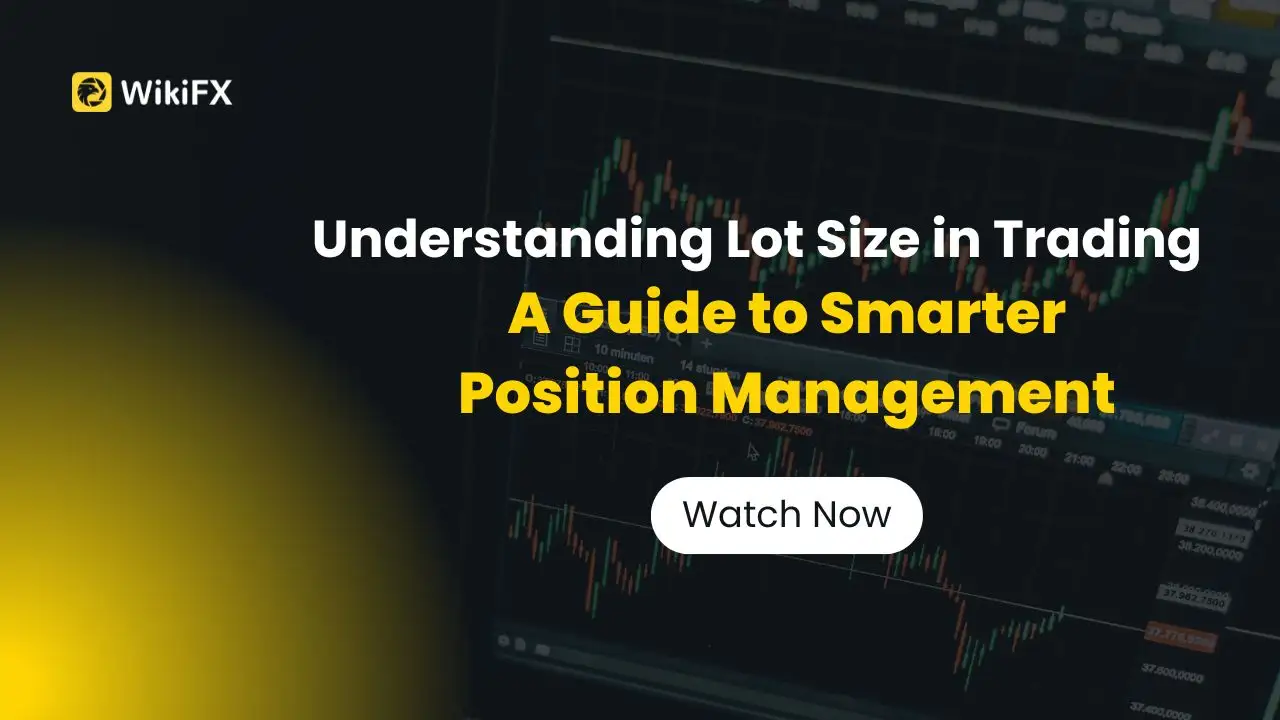简体中文
繁體中文
English
Pусский
日本語
ภาษาไทย
Tiếng Việt
Bahasa Indonesia
Español
हिन्दी
Filippiiniläinen
Français
Deutsch
Português
Türkçe
한국어
العربية
Forex trading: A Fresh Approach
Abstract:For beginners in Forex trading, the abundance of information can be overwhelming. Knowing where to start can simplify the learning process and reduce stress levels.

To understand the intricacies of Forex trading, below are ten crucial steps to follow:
1. Introduction: Understand what a currency pair is and how Forex markets operate.
2. Learn the Basics of Trading Platforms: Get familiar with MetaTrader 4 (MT4) or MetaTrader 5 (MT5).
3. Practice with Demo Accounts: Learn risk-free through simulated trading.
4. Choose a Quality Broker: Select a regulated provider with a user-friendly interface.
5. Use Educational Tools: Access tutorials, walkthroughs, and market analysis resources.
6. Analyze Trading Strategies: Get acquainted with various methods and apply them in a demo account.
7. Stay Informed: Keep up with financial and market headlines.
8. Monitor Your Progress: Track performance and refine strategies weekly.
9. Create a Risk Management Plan: Understand leverage, stop-loss orders, and capital protection.
10. Ease into Live Trading: Start slowly and avoid investing money you cannot afford to lose.
At first glance, this process may seem overwhelming, but breaking it down into steps makes it manageable.
The Reality of Forex Trading for Beginners
Forex trading is demanding and requires dedication. Traders should stay updated on global news, analyze market trends, and adjust their strategies accordingly. Unlike skills that can be mastered overnight, successfully developing a trading strategy may take months or even years. Even experienced traders continue to learn and adapt.
Ways to Learn Forex Trading
Mastering Forex trading is a challenging yet rewarding journey. Like any profession, it requires continuous learning, practice, and patience. Heres how you can develop the necessary skills:
1. Web-based Educational Resources: Many brokers offer free materials on trading strategies, risk management, and market analysis.
2. Textbooks and Video Tutorials: Combining theory with practical examples enhances learning.
3. Demo Accounts: Simulated practice is essential before committing real capital.
Trading Strategies: Why Copying Others Doesn‘t Work
It’s important to learn from others, but replicating another traders strategy does not necessarily guarantee success. Every trader has a unique style based on personal risk tolerance, market goals, and psychological factors. Instead of blindly copying strategies, experiment with different methods and refine what works best for you.
Opening a Trade: A Beginners Checklist
Executing a trade correctly is crucial for success. Follow these steps:
1. Confirm your setup based on your trading strategy.
2. Select the appropriate order type (market or pending).
3. Choose between a buy or sell order.
4. Set stop-loss and take-profit levels.
5. Monitor the trade and record it in your trading journal for future reference.
Learning Forex Trading Doesnt Have to Be Expensive
Thanks to online resources, learning Forex trading does not have to be costly. Many brokers offer demo accounts that allow traders to practice without financial risk. However, transitioning from a demo to a live account involves emotional and psychological adjustments. Real-money investments can trigger fear and greed, leading to irrational decisions.
Steps from Demo to Live Trading
1. Open a demo account and practice on the platform.
2. Develop and backtest a trading strategy.
3. Forward-test the strategy in a demo environment.
4. Start live trading with a small amount of capital.
5. Analyze performance and refine your approach.
Common Mistakes New Traders Make
Lack of Preparation
Many beginners dive into trading without proper research. Successful traders treat Forex as a business, where profits and losses fluctuate. Having realistic expectations is crucial.
Ignoring Market Trends
While experienced traders may occasionally trade against the trend, beginners are advised to follow the trend. Trend-following strategies generally carry less risk for those still learning the market.
Overtrading Out of Boredom
Patience is key in Forex trading. Most professional traders execute only a few trades per month. Forcing trades due to impatience often leads to unnecessary losses.
Poor Risk Management
Leverage can magnify both profits and losses. As a beginner, use low leverage and control position sizes to manage risk effectively.
e the loss much larger. As a first approach, low leverage and control of size position are recommended for laterals.
Key Takeaways for Learning Forex Trading
1. Choose a Reputable Broker: Regulation, trading costs, and platform reliability matter.
2. Avoid Overtrading: Do not let emotions drive your trades.
3. Select the Right Trading Software: Platforms like MT4 and MT5 provide essential tools.
4. Experiment with Different Strategies: Test and refine strategies to find what works best.
FAQ: Common Forex Trading Questions
How long does it take to master Forex trading?
Becoming proficient can take months or even years. Mastery requires time, effort, and continuous improvement.
What currency pairs should beginners trade?
Major pairs (EUR/USD, GBP/USD, USD/JPY) are the most liquid, offering tighter spreads and greater stability.
Should I use leverage?
Leverage can amplify profits but also increases risk. Beginners should use it cautiously and focus on risk management.
Conclusion
Forex trading is a complex yet rewarding endeavor that requires patience, discipline, and continuous learning. Newcomers should prioritize understanding the basics, practicing with demo accounts, and transitioning to live trading in a structured way. With dedication and perseverance, traders can increase their chances of long-term success.
Disclaimer:
The views in this article only represent the author's personal views, and do not constitute investment advice on this platform. This platform does not guarantee the accuracy, completeness and timeliness of the information in the article, and will not be liable for any loss caused by the use of or reliance on the information in the article.
Read more

Spread vs Swap: How Can They Affect Your Trading
In forex trading, success is not only about predicting price movements correctly. It also depends on understanding the costs involved. Two of the most important charges that every trader should factor in are the spread and the swap. These are key components of the overall forex trading fee charged by brokers, and both can have a direct impact on the outcome of a trade.

What is a Cent Account? Definition and Explanation
Learn what a Cent Account is, how it works in Forex trading, and why it's an ideal option for beginners. Compare Cent Accounts with Standard and Micro accounts.

Understanding Lot Size in Trading: A Guide to Smarter Position Management
Learn how lot size in trading affects your risk, profit, and strategy execution. Discover how to calculate the ideal lot size for your trades with real examples and smart tips.

5 Powerful Forex Trading Indicators Every Trader Needs
Learn about the 5 most powerful forex trading indicators every trader should use. Improve your market analysis, trading decisions, and accuracy with these essential tools.
WikiFX Broker
Latest News
Top Wall Street analysts recommend these dividend stocks for regular income
Stock futures rise as U.S.-EU trade deal kicks off a hectic week for markets: Live updates
Thailand-Cambodia War Pressures Thai Baht in Forex Market
Treasury yields tick lower as investors look ahead to Fed's interest rate decision
European stocks set to rise after the U.S. and EU strike trade agreement
Samsung Electronics signs $16.5 billion chip-supply contract; shares rise
Does XS.com Hold Leading Forex Regulatory Licenses?
Elon Musk confirms Tesla has signed a $16.5 billion chip contract with Samsung Electronics
Chile Bumps Up Copper Price Forecast and Flags Lagging Collahuasi Output
A breakthrough and a burden? What the U.S.-EU trade deal means for the auto sector
Currency Calculator



